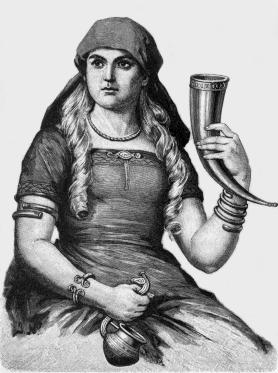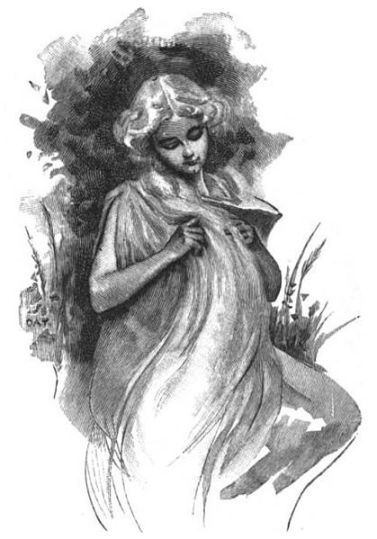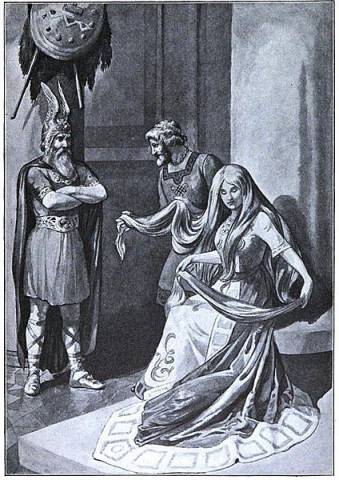Among all the gods and goddesses found in Norse mythology, I have always found Sif interesting. Largely because while Sif is an Aesir goddess, and wife to the thunder god Thor, we don’t know much about her.
Adding to the intrigue of Sif, her son Ullr is not Thor’s biological son, instead Thor has adopted him. The only children shared by Sif and Thor is their daughter Thrud and son Modi. Sadly, we don’t have many sources when it comes to Sif. In this article I am pulling together the few I have found, and also lean on what we know about her children to understand who she was to the Vikings.
Sif stands out as a figure of elegance and mystery. Wife to Thor, she is chiefly known for being very beautiful, and perhaps just a little vain. A recuring theme when she is mentioned is her beauty, either directly, or implicitly as she is desired by quite a few.
Sif Key Facts
| Parents | Unknown |
| Partners | Thor |
| Siblings | Unknown |
| Offspring | Ullr, Modi and Thrud |
| Tribe | Aesir |
| Old Norse name | Sif |
| Other names | None |
| The God of | Fertility, Family, and Harvest |
| Ass. Animal | None |
Name and Etymology
The name “Sif” refers to the goddess. However, a deeper exploration reveals that “Sif” is derived from the plural Old Norse term “sifjar”. This term is more than just a name; it signifies bonds and affiliations.
“Sifjar” is related to the Old English “sibb” and the modern English “sib”, both of which mean “affinity, connection, or by marriage”. This etymological connection underscores the goddess’s overarching theme of relationships. The term “sifjar” also finds its place in everyday language, with the phrase “byggja sifjar” meaning “to marry”, emphasizing the theme of union. Various scholars have provided interpretations for “sifjar”, with some seeing it as indicating “in-law-relationship”, others as “relation”, and yet others as “relation by marriage”.
In the 19th century, residents of Värmland, Sweden, referred to Sif as “godmor”, which translates to “godmother”. This title captures the nurturing and caring attributes associated with Sif.
Kennings for Sif
Kennings are poetic expressions from Norse literature that offer alternative references to entities, adding depth to the narrative. Reading into, and sometimes a bit between the lines of the various kennings can sometimes provide some interesting insights. In Skáldskaparmál, Sif is described through various kennings:
- Wife of Thor: This emphasizes her primary relationship with Thor.
- Mother of Ullr: This refers to her role as the mother of Ullr, the god of archery and winter.
- Fair-Haired Goddess: A reference to her iconic golden hair, symbolizing fertility and harvest.
- Co-Wife of Járnsaxa: This touches upon Thor’s other relationships.
- Mother of Thrúdr: Referring to her daughter Thrúdr, a symbol of strength.
These kennings provide insights into Sif’s diverse roles in Norse mythology, yet also shows how she is mostly identified in relation to others.
Sif Origins
The origins of Sif are a mystery. Unlike many other Norse gods and goddesses, her parentage and early life remain largely undisclosed in ancient texts. What’s clear is her role as Thor’s wife, making her an integral part of the Aesir tribe. Her birth and parentage, if ever detailed in lost sagas, remains a topic of speculation among scholars.
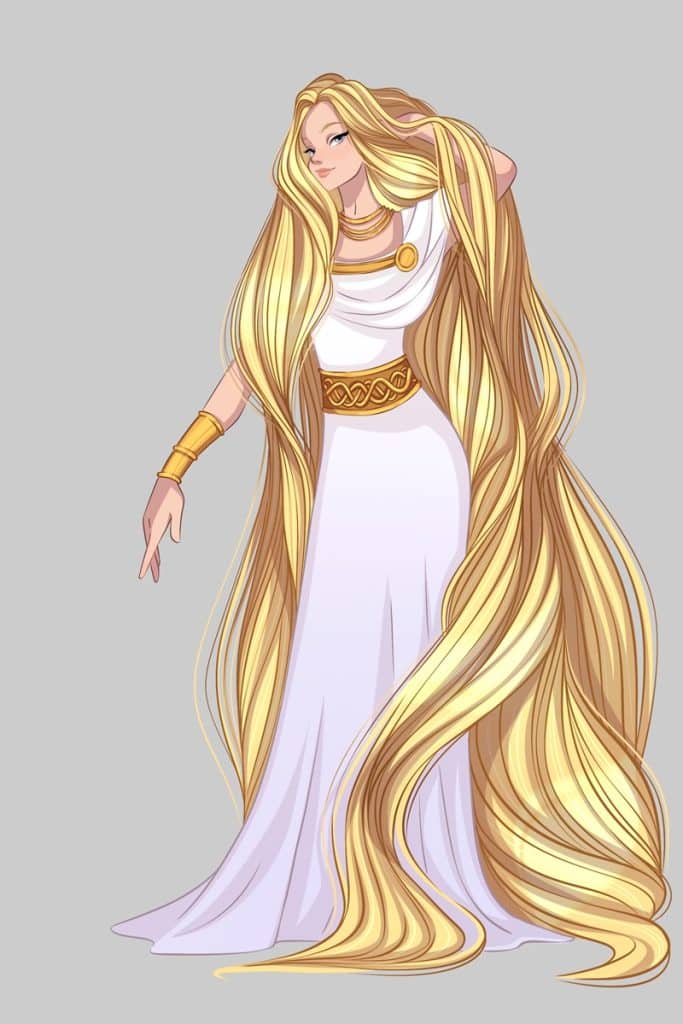
Sif Family and Relationships
Sif’s familial ties and relationships, though not extensively detailed in every Norse saga, play a pivotal role in shaping her character and the narratives she’s a part of. Each relationship offers a unique perspective into her life and the broader Norse mythological landscape.
Ullr’s Unknown Father
Before her union with Thor, Sif bore a son named Ullr. The identity of Ullr’s biological father remains one of the enigmas of Norse mythology. This mystery adds a layer of intrigue to Sif’s past, suggesting a rich history that predates her association with the Aesir tribe. I want to add that as I so often realize, there are mountains of information we have lost. Being the father of a god adopted by Thor, for sure Ullrs’ father was known to the Vikings and skalds.
Ullr
Ullr stands out as a significant figure in Norse mythology. Recognized as the god of archery, skiing, and winter, he holds a special place in the pantheon, especially during the colder months. While his association with Sif is clear, his deeper origins is a mystery. Some scholars believe that Ullr might hail from a time before the Viking Age, suggesting that he could be one of the older deities, with a legacy that extends beyond the commonly known Norse tales. Personally, I am sort of leaning towards him being half jötun, making his father some jötun associated with winter and snow. Maybe Ullr and Skadi are related even.
Thor
Sif’s relationship with Thor, the god of thunder, is one of mutual respect and deep affection. As his wife, she plays a grounding role, offering wisdom and balance to Thor’s often boisterous nature. Their bond is evident in various myths, where their lives and fates intertwine in intricate ways.
Modi
Son of Sif and Thor, Modi is among the few who will survive Ragnarök along with his half-brother Magni.
Thrúdr
Thrud, another offspring of Sif and Thor, is an enigmatic figure. While not as prominently featured as Ullr, she holds her own significance. Some tales suggest that Thrúdr might be associated with battle, embodying strength and valor. Others hint at the possibility of her being a Valkyrie, one of the warrior maidens serving Odin. Whether a goddess or a Valkyrie, Thrúdr’s association with battle and warfare adds another dimension to Sif’s lineage.
Sif’s Roles, Depiction, and Symbolism
In Norse mythology, Sif embodies themes of fertility, family, and harvest. Her lustrous golden hair, a standout feature, often leads modern scholars to see it as a symbol of golden wheat fields, representing abundance and prosperity. Beyond its aesthetic appeal, this association underscores her pivotal role as a goddess of fertility and motherhood.
Her union with Thor, the god of thunder and weather, further accentuates this symbolism. In many mythologies, a recurring motif is the union between a sky god, associated with weather and rain, and an earth goddess, symbolizing fertility and the land. This pairing often signifies the harmonious relationship between the heavens and the earth, leading to a bountiful harvest. Thor, with his control over rain and storms, combined with Sif’s representation of the fertile earth, embodies this universal theme. Their union can be seen as a symbolic representation of the perfect conditions for a rich harvest: the nourishing rains from the sky meeting the fertile lands below.
Furthermore, Sif’s demeanor and actions in various myths reflect her nurturing nature. While she may not be as combative as some other Norse deities, her strength lies in her wisdom, her ability to forge and maintain relationships, and her role in ensuring prosperity and abundance. Her depiction as a calm and composed figure stands in contrast to the often tumultuous world of the gods, further emphasizing her role as a stabilizing and nurturing force.
Play Fun Norse Quiz
Is this article making you even more curious about Norse gods and goddesses? You can satisfy your curiosity by playing a fun Norse mythology quiz. This way, you can test your knowledge about Norse gods and goddesses, as well as fill in some gaps. Good luck and have fun playing!
Don’t forget to try our other games as well!
Myths about Sif
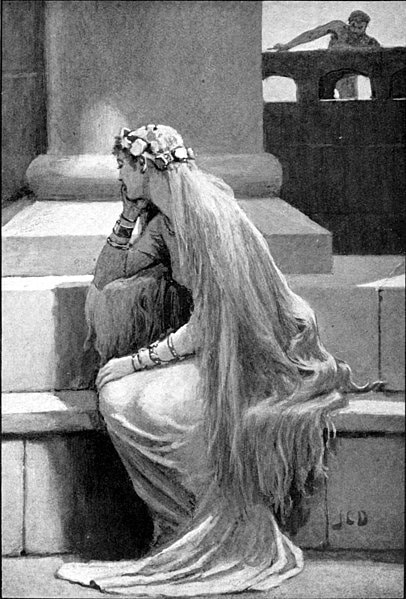
Sif, while not always the central figure in Norse myths, plays significant roles in various tales. Her presence, whether passive or active, adds depth and intrigue to the stories she graces.
Haustlöng
In the Haustlöng, which is part of the Skáldskaparmál, the jötun Hrungnir becomes intoxicated and boisterously declares his intent to abduct Freyja and Sif. While Sif doesn’t actively participate in the unfolding events, her allure and significance are evident. She becomes a symbol of desire, a testament to her beauty and importance among the gods.
“Hrungnir, in his drunken stupor, threatens to carry away both Freyja and Sif, showcasing the allure they hold.”
Harbardsljod
Harbardsljod delves into a recurring theme in Norse mythology: the insinuations of Sif’s affairs. In this poem, just as in the Lokasenna, there are hints of Sif being involved with someone other than Thor. This recurring motif sparks curiosity and speculation, especially concerning the parentage of Ullr.
“The whispers of Sif’s affairs, whether true or mere slander, add layers of intrigue to her character, making one ponder the mysteries surrounding her relationships.”
Lokasenna
In the Lokasenna, Sif’s interactions with Loki are highlighted. As previously described, she offers Loki a drink in an attempt to maintain peace amidst his barrage of insults towards the gods. However, Loki, ever the provocateur, hints at an affair between them, adding to the enigma of Sif’s relationships.
“Sif’s grace and Loki’s mischief collide in the Lokasenna, painting a vivid picture of the dynamics among the gods.”
The Treasures of the Gods
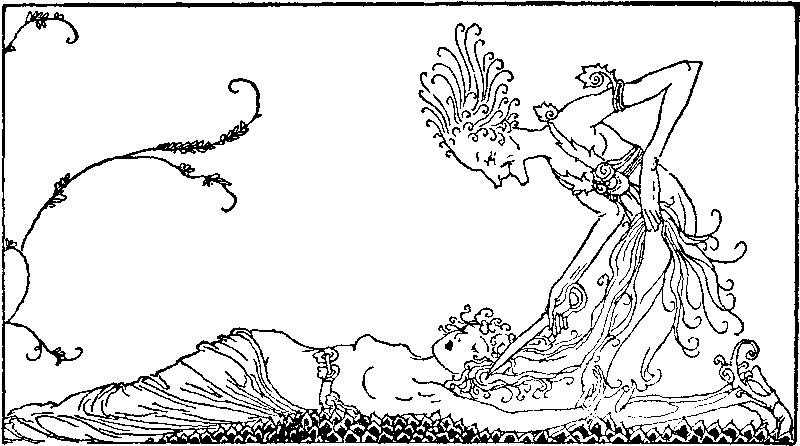
This tale, found in the Skáldskaparmál, is perhaps the most iconic myth involving Sif. Loki, in a mischievous act, cuts off Sif’s golden locks. The gravity of his prank becomes apparent when Thor threatens him, leading Loki to seek a remedy. He approaches the dwarves, master craftsmen, who not only create a new set of golden hair for Sif but also forge other invaluable treasures for the gods. This myth underscores Sif’s importance among the Aesir and showcases the lengths to which the gods would go to right a wrong done to her.
“Loki’s prank on Sif sets in motion a series of events that lead to the creation of some of the most cherished treasures of the Aesir, highlighting her esteemed position among the gods.”
Mentions of Sif in the Eddas
Poetic Edda
Hárbarðsljóð
In the poem Hárbarðsljóð, Hárbarðr, who is Odin in disguise, meets Thor at an inlet. They engage in a verbal duel, known as flyting. Hárbarðr, among other jibes, hints that Sif might have a lover back home. Thor retorts, pointing out Hárbarðr’s careless words about what pains him the most.
“Hárbarðr claims that Sif has a lover at home. In response, Thor says that Hárbarðr is speaking carelessly ‘of what seems worst to me’ and also lying.”
Lokasenna
In the poem Lokasenna, Sif offers Loki a drink, trying to keep the peace amidst his insults towards the gods. However, Loki insinuates an affair between them:
“Then Sif went forward and poured out mead for Loki into a crystal cup and said: Welcome now, Loki, and take the crystal cup full of ancient mead, you should admit, that of the children of the Æsir, that I alone am blameless. He took the horn and drank it down: That indeed you would be, if you were so, if you were shy and fierce towards men; I alone know, as I think I do now, your lover beside Thor, and that was the wicked Loki.”
Prose Edda
Prologue
In the Prose Edda’s prologue, Sif is introduced as Thor’s wife. She’s described as the most beautiful woman with golden hair.
“Sif is known as ‘a prophetess called Sibyl, though we know her as Sif’. Sif is further described as ‘the loveliest of women’ and with hair of gold.”
Gylfaginning
In the chapter Gylfaginning, Ullr is highlighted as Sif’s son and Thor’s stepson. His prowess in archery and skiing is emphasized, making him unparalleled in these skills.
“Ull is the name of one. The son of Sif, he is the stepson of Thor. He is so skillful a bowman and skier that no one can compete with him. He is beautiful to look at, and is an accomplished warrior. He is also a good person to pray to when in single combat.”
Skáldskaparmál
In Skáldskaparmál, various tales involving Sif are narrated. One such tale involves Loki mischievously cutting off Sif’s golden locks. This act leads to a series of events where Loki is compelled to replace her hair with even more magnificent golden strands. This chapter also recounts the tale of Hrungnir, a jötunn who desires to take Sif and Freyja home. Thor, in his rage, duels and defeats Hrungnir.
“Loki cuts off Sif’s hair as a prank. When Thor discovers this, he grabs hold of Loki, resulting in Loki swearing to have a headpiece made of gold to replace Sif’s locks.”
Frequently Asked Questions
Sif is renowned as a goddess of fertility, family, and harvest, often symbolized by her golden hair.
She is married to Thor, the thunder god.
Yes, her children include Ullr and Thrud.
Sif is a member of the Aesir tribe.
Her hair represents the golden fields of wheat, symbolizing harvest and abundance.
Featured Image Credit: A. Chase, Public domain, via Wikimedia Commons

